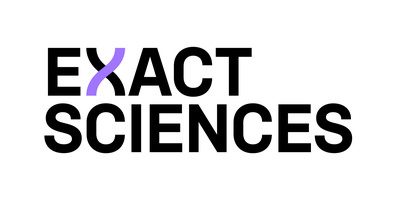Exact Sciences Presents First Time Data Detailing Ability to Predict Radiation Therapy Benefit in Breast Cancer Patients
Exact Sciences Corp. (NASDAQ: EXAS) has released initial clinical validation data for its breast cancer radiation signature, POLAR, at the 2022 San Antonio Breast Cancer Symposium. This meta-analysis from three clinical trials demonstrated that POLAR is the first genomic signature to predict the benefit of radiotherapy for early-stage breast cancer patients. About 25% of patients were identified as not benefiting from radiotherapy, addressing a crucial clinical need. The analysis included 623 patients, showing significant differences in local recurrence rates based on POLAR scores.
- POLAR is the first genomic signature that predicts radiotherapy benefit, addressing a significant clinical need.
- The analysis showed that POLAR could identify ~25% of patients who do not benefit from radiotherapy after breast-conserving surgery.
- The study included data from three major clinical trials, increasing the credibility of the results.
- The statement indicates that only a subset of patients may benefit from radiotherapy, which could limit the broader applicability of the treatment.
MADISON, Wis., Dec. 9, 2022 /PRNewswire/ -- Exact Sciences Corp. (NASDAQ: EXAS), a leading provider of cancer screening and diagnostic tests, today shared initial clinical validation data for its breast cancer radiation signature, Profile for the Omission of Local Adjuvant Radiotherapy (POLAR), at the 2022 San Antonio Breast Cancer Symposium® (SABCS®). The meta-analysis of three independent, randomized clinical trials identified which early-stage breast cancer patients benefited from radiotherapy after breast-conserving surgery.
POLAR is the first genomic signature that is both prognostic for the risk of local regional recurrence and predictive of radiotherapy benefit. The analysis found that patients at low risk for local regional recurrence following breast-conserving surgery did not benefit from radiotherapy (~
"Exact Sciences' POLAR signature addresses a significant clinical need for those with early-stage, hormone receptor positive breast cancer, identifying which patients may benefit from radiotherapy and which may not," said Rick Baehner, M.D., chief medical officer of Precision Oncology at Exact Sciences. "Like chemotherapy, radiation therapy has significant physical, mental, and monetary costs associated with it. These data are a critical step toward providing patients with a new tool to help ensure better breast cancer treatment decisions."
The meta-analysis included 623 patients with lymph node-negative, estrogen receptor-positive, HER2-negative breast cancer who were enrolled in one of three randomized clinical trials, the Swedish SweBCG91RT trial, Scottish Conservation Trial, and Canadian trial from the Princess Margaret Hospital, examining the efficacy of breast-conserving surgery with and without local breast radiation therapy.
"In a patient-level meta-analysis, the POLAR gene profile successfully predicted which patients would and would not benefit from local radiation therapy," said lead author Per Karlsson, M.D., professor of oncology at the Sahlgrenska Comprehensive Cancer Center and the University of Gothenburg in Sweden. "To our knowledge, POLAR is the first genomic classifier that is both prognostic for the risk of local regional recurrence and predictive of radiotherapy benefit following breast-conserving surgery.
To validate the POLAR signature as both prognostic and predictive, the investigators analyzed gene expression in breast tumor samples to assign each patient a POLAR score. They then examined the impact of radiation therapy for patients with high and low scores. Among the 479 patients with high POLAR scores, those who did not receive adjuvant radiation therapy after breast-conserving surgery had a 63 percent greater risk of local recurrence compared with those who did receive adjuvant radiation therapy. For the 194 patients with low POLAR scores, there was no significant difference in local recurrence rate between those who received adjuvant radiation therapy and those who did not. After 10 years, five percent of patients who received radiation therapy experienced a local recurrence, compared with seven percent of those who did not receive radiation therapy.
About Exact Sciences' Precision Oncology portfolio
Exact Sciences' Precision Oncology portfolio delivers actionable genomic insights to inform prognosis and cancer treatment after a diagnosis. In breast cancer, the Oncotype DX Breast Recurrence Score® test is the only test shown to predict the likelihood of chemotherapy benefit as well as recurrence in invasive breast cancer. The Oncotype DX® test is recognized as the standard of care and is included in all major breast cancer treatment guidelines. The Oncomap™ ExTra test applies comprehensive tumor profiling, utilizing whole exome and whole transcriptome sequencing, to aid in therapy selection for patients with advanced, metastatic, refractory, relapsed, or recurrent cancer. With an extensive panel of approximately 20,000 genes and 169 introns, the Oncomap ExTra test is one of the most comprehensive genomic (DNA) and transcriptomic (RNA) panels available today. Exact Sciences enables patients to take a more active role in their cancer care and makes it easy for providers to order tests, interpret results, and personalize medicine by applying real-world evidence and guideline recommendations. To learn more, visit precisiononcology.exactsciences.com.
About Exact Sciences Corp.
A leading provider of cancer screening and diagnostic tests, Exact Sciences relentlessly pursues smarter solutions providing the clarity to take life-changing action, earlier. Building on the success of Cologuard® and Oncotype® tests, Exact Sciences is investing in its product pipeline to support patients before and throughout their cancer diagnosis and treatment. Exact Sciences unites visionary collaborators to help advance the fight against cancer. For more information, please visit the company's website at exactsciences.com, follow Exact Sciences on Twitter @ExactSciences, or find Exact Sciences on Facebook.
NOTE: Oncotype, Oncotype DX, Oncotype DX Breast Recurrence Score, Oncotype DX Breast DCIS Score, Recurrence Score and Oncomap are trademarks or registered trademarks of Genomic Health, Inc. Exact Sciences and Cologuard are trademarks or registered trademarks of Exact Sciences Corporation. All other trademarks and service marks are the property of their respective owners.
Forward-Looking Statements
This news release contains forward-looking statements concerning our expectations, anticipations, intentions, beliefs or strategies regarding the future. These forward-looking statements are based on assumptions that we have made as of the date hereof and are subject to known and unknown risks and uncertainties that could cause actual results, conditions and events to differ materially from those anticipated. You should not place undue reliance on forward-looking statements. Risks and uncertainties that may affect our forward-looking statements are described in the Risk Factors sections of our most recent Annual Report on Form 10-K and any subsequent Quarterly Reports on Form 10-Q, and in our other reports filed with the Securities and Exchange Commission. We undertake no obligation to publicly update any forward-looking statement, whether written or oral, that may be made from time to time, whether as a result of new information, future developments or otherwise.
Media (U.S.): | Media (OUS): | Investors: |
Gisela Pedroza | Federico Maiardi | Megan Jones |
+1 949-468-7854 | +41 79-138-1326 | +1 608-535-8815 |
![]() View original content to download multimedia:https://www.prnewswire.com/news-releases/exact-sciences-presents-first-time-data-detailing-ability-to-predict-radiation-therapy-benefit-in-breast-cancer-patients-301699003.html
View original content to download multimedia:https://www.prnewswire.com/news-releases/exact-sciences-presents-first-time-data-detailing-ability-to-predict-radiation-therapy-benefit-in-breast-cancer-patients-301699003.html
SOURCE EXACT SCIENCES CORP
FAQ
What is the POLAR signature by Exact Sciences?
What were the findings of the POLAR analysis presented at SABCS 2022?
How many patients were involved in the POLAR trial?
What is the significance of the POLAR data for breast cancer treatment?








